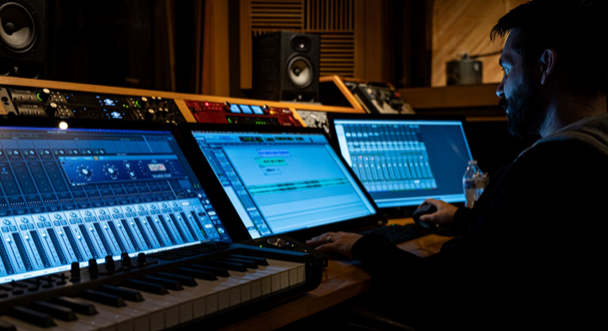Players can experience three aural elements through the coin-dropping melodies and tense spinning reel music that coincides with winning sounds. The designers of slot machines consider audial components as essential elements that are not added after the fact. In particular, sound engineers create auditory worlds that improve player retention and immersion. Sound designers program slot machines like film score composers to produce emotional pathways during gameplay which amplifies enthusiasm when almost winning and initiates pleasure center triggering audio responses for victory success.
The Psychology Behind the Sound
The performance of gambling gets modified by sound elements, which most players fail to realize. Audio stimuli and player engagement represent a research topic vital to developers of games in online casinos. Scientific studies show that the right musical accompaniments enable gamers to play longer periods by around thirty percent because auditory stimulation sustains flow state mental immersion while playing. When used as a feedback tool, sound creates audio feedback that enhances the experience by giving both big wins stronger emphasis and reducing the impact of losses. The psychological techniques deployed do not necessarily create harm because they represent a complex technological system which improves gameplay immersion and player retention.
From Land-Based to Digital: Evolution of Slot Soundscapes
Game developers transformed the rigid sound productions of mechanical slots into digital platforms, which brought forth dynamic audio capabilities through thematic music and voice roles as well as dynamic sound effects. Since both video game audio productions began with simple tones and progressed toward orchestral musical soundtracks, there are similarities between the two. The combination of film scoring practices and gambling theory established an independent artwork through which current slot machines deliver professional compositions with elements similar to Hollywood productions, including narrative themes and character motifs. The industry places a strong emphasis on sound quality because it understands how important it is to the player experience.
Creating Emotional Connections Through Audio
Simple reel spinning is not as successful as slot machine music tracks that create strong emotional associations. Music that creates tension through suspense plays a role in symbol alignment, while fanfare themes enhance the importance of small victories, and background sound preserves player interest in normal gameplay. These encounters build intimate emotional connections through aural components, transforming repetitive gambling into enjoyable activities.
The contemporary game design industry develops distinct audio signatures which immediately identify to players even when they hear them out of context. The establishment of a sonic identity enhances market trust and present familiarity, so players retain their commitment in competitive gambling markets. Winning sounds that play “ka-ching” as well as individual theme music become connected to pleasurable experiences that encourage players to return to their favorite games.
Cultural Adaptations in Sound Design
Slot machine soundscapes use different musical preferences across cultures since Asian markets blend percussion with pentatonic scales, while Western players prefer rock and orchestral music. Different slots adopt unique soundtracks that match their theme, where Egyptian slots present Middle Eastern motifs and fantasy games duplicate film score compositions. The way audio elements connect known sounds to new audio patterns demonstrates exactly how knowledge of different cultures leads to sound design success, especially when operating in an international consumer base.
Technical Innovations Shaping the Future
New technology innovations transform how players hear game sound elements in gaming. Down permits users to experience fully immersive aural environments which enhance gaming immersion especially for virtual reality gambling activities. In order to maintain player interest or provide lower sounds during extended sessions and louder ones during bonus events, good audio systems adjust sound effects using gameplay data.
Heart rate feedback and other emotional indications can be used by soundtracks that use biometric feedback technology to alter intensity levels and pace. Game soundtracks that adjust to player reactions will produce more individualized experiences that combine player emotions with game advancements.
In the End
Gaming machines’ built-in sound systems need to combine artistic expression with technological prowess and psychological fact patterns. These audio components do not function as supplemental components since they play an essential role in boosting user engagement and steering game experiences. The evolution of jingles into complex layered audio compositions was influenced by behavioral research and the advancement of audio engineering technologies. Modern slot machine manufacturers devote expert attention to soundtrack development, which produces particular emotional triggers to sustain gameplay.
As technology progresses, it will most likely result in sound design systems creating adaptable elements that react to player actions and preferences automatically. Entertainment systems which present basic operations need extensive planning alongside technical expertise and human behavior comprehension to fulfill their desired results.





Comments